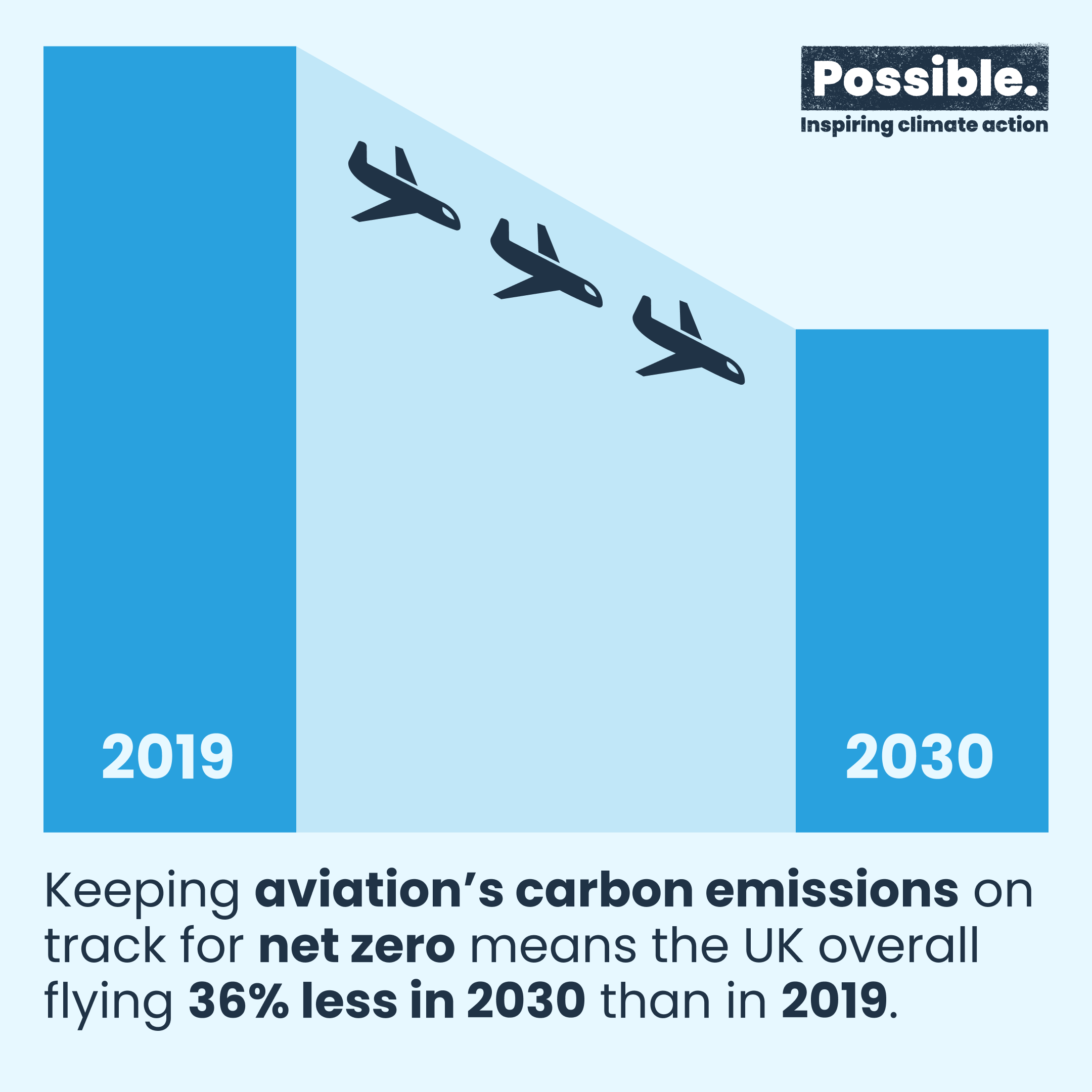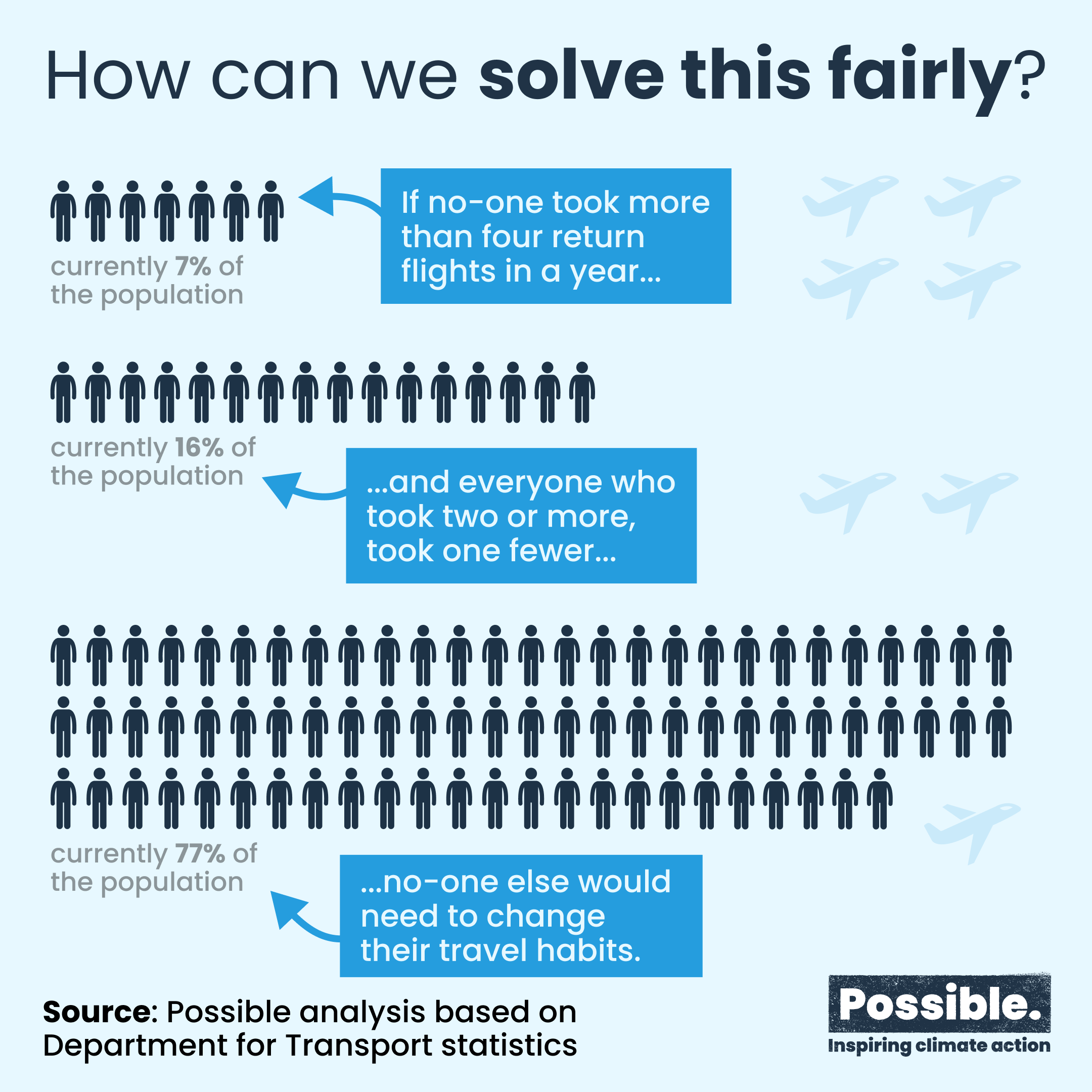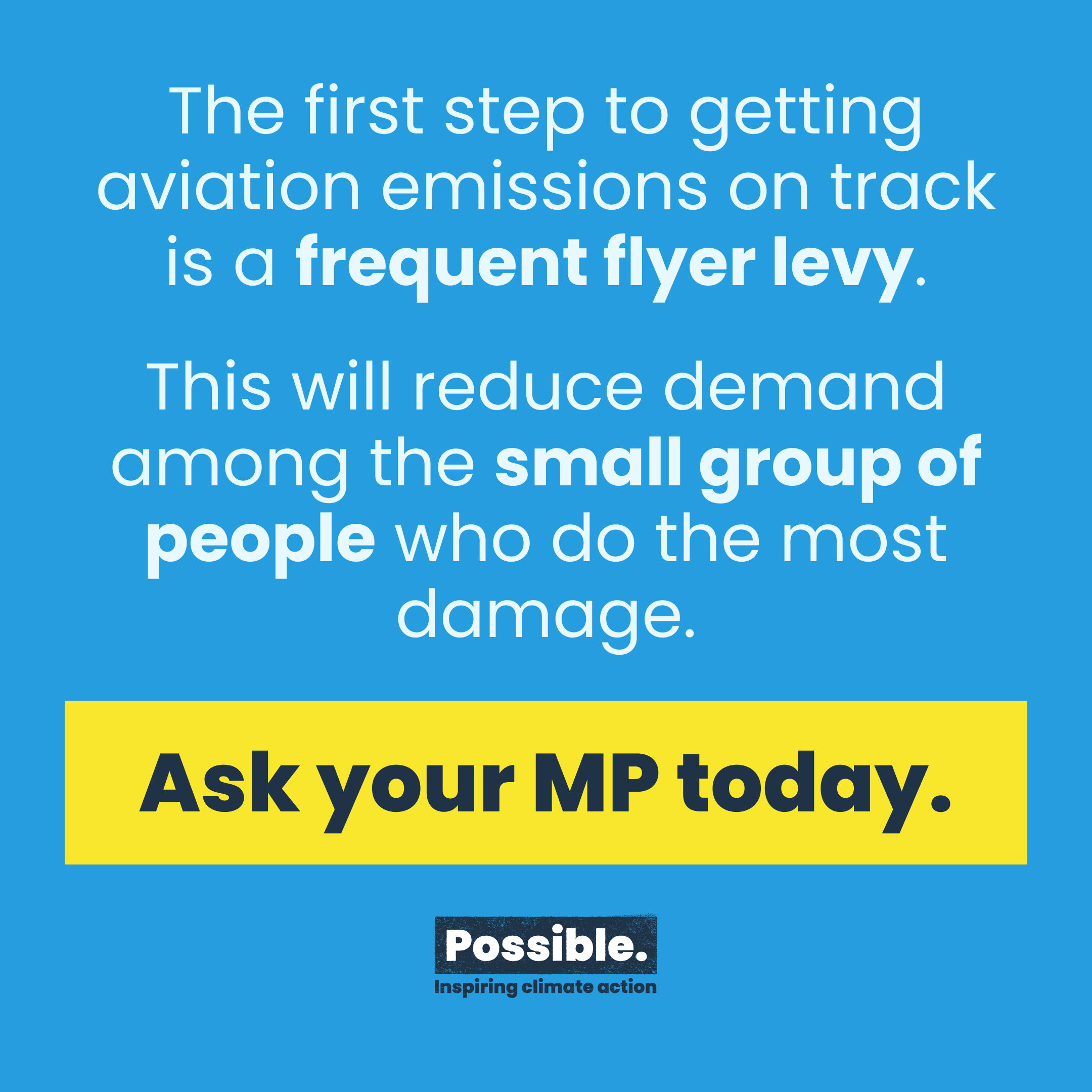Cutting UK’s flights by a third? It’s easier than you might think!
Flying is the fastest growing cause of carbon emissions, and one of the biggest issues for the UK climate movement, with Brits taking more international flights than people of any other country. Without a zero-carbon plane waiting in the wings* we just can’t keep this up - if we’re serious about our climate commitments we simply need to cut back on flying. In fact, our latest report finds that the UK won’t hit our climate targets unless we reduce flying by 36%.
The good news is that there’s a way to reduce flying by 36% without affecting most people’s holiday habits at all!
Our report finds that this is all we need to do in to hit the 36% reduction target:
77% of the public won’t have to change their travel habits at all; they already keep to one return flight a year or less.
The remaining 23% reduce their flights by one return flight a year, with no-one taking more than four return flights per year.
Sounds good? Let’s make it happen.
Loads of us in the UK and beyond are already choosing to travel to our holiday destinations by coach, train, or ferry instead of flying in order to cut our carbon footprint, with many making the flight-free pledge. But while we do what we can to encourage our friends and family to cut back on flying, it certainly isn’t easy when airlines are given tax breaks, and able to offer flights for a fiver.
One thing the government could do would be to bring in a frequent flyer levy. This would be progressive tax which would be charged at zero on each person’s first return flight in a given year, and then increase per flight which they take in that time period. This would protect access to occasional air travel for all of us so we can still make the journeys that are really important to us, such as visiting family who live far away, while disincentivizing the frequent leisure travel that causes most of the harm to the climate from aviation.
This is a fair solution, and it’s popular too (with 89% people supporting it). Thousands of us have asked our MPs to introduce a frequent flyer levy, and yet the government is still holding back.
This report is exactly what we need to get politicians to act.
The government, understandably, hasn’t wanted to tell voters they’ll need to stop flying, and so far have avoided any policies to address flying habits. Instead, the government’s strategy relies on new technologies being developed to make low carbon flying a reality. Our report shows that the government’s strategy won’t work; without behaviour change, we simply won’t achieve the reduction in carbon emissions that the government itself has set as a target.
The report also shows that by putting a cap on frequent flying, the government can hit its carbon reduction target without affecting the majority of voters, making our frequent flyer levy proposal much easier for MPs to get behind.
How you can help:
Use our online tool to ask your MP to support a frequent flyer levy
We’ve made it quick and easy to ask your MP to take action on flying. Type in your name and postcode, and you’ll see a template email for your local MP, briefing them on our research findings and saying that you (as their constituent) would like them to support a frequent flyer levy. You can personalise the email, or simply hit “SEND”.
2. Cut back on flying yourself
If you’re someone who loves to travel, one of the best things you can do for the planet is to cut back on frequent flying. Europe is blessed with some of the best rail networks in the world, and there are loads of companies and websites dedicated to help you book flight-free adventures. Click the button below for advice and resources for booking and planning climate-friendly holidays.
3. Get your employer signed up to Climate Perks
To make the choice to travel flight-free that bit easier, we’re asking companies to give their staff additional paid days off work if they get to their holiday destinations by train, coach or ferry. Since launching, Climate Perks has seen more than 65 organisations promise to give their employees at least two travel days. These organisations include the likes of the environmental NGO Friends of the Earth, the ferry service Direct Ferries, and the law firm Bates Wells.



